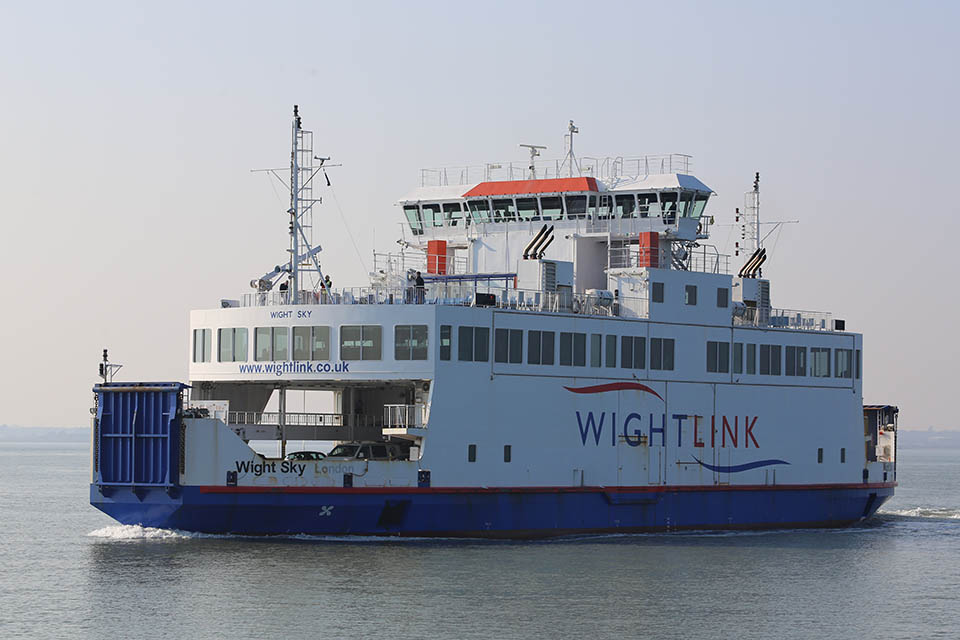Two catastrophic engine failures, one resulting in a fire, on board ro-ro passenger ferry Wight Sky
Location: Entrance to Lymington River, and Lymington Pier, England.
Accident Investigation Report 4/2022
Read our marine accident investigation report, which includes what happened, actions taken, and recommendations:


Summary
On 26 August 2018, Wight Sky suffered a catastrophic main engine failure as it prepared to enter the Lymington River on its regular crossing from Yarmouth, Isle of Wight. This was the ferry’s second catastrophic main engine failure in less than a year, the failed engine being the replacement for the previous failure that had resulted in a fire and serious injuries to an engineer officer. On 14 December 2018, Wight Sky suffered a third catastrophic engine failure. On this occasion, the failed engine was a new build and had been in operation for just 389 hours.
Wight Sky was one of three Wight Class sister ferries and following the third engine failure Wightlink withdrew its Wight Class ferries from service. Following discussions between the ferry owner, the Maritime and Coastguard Agency, Lloyd’s Register, and the engine manufacturer Volvo Penta, a mitigation plan was put in place to enable the ferries to return to service.
This investigation found a history of engine failures across the Wight Class fleet dating back to 2010 and consequently, the scope of the investigation expanded to include all known failures. This led to a long and detailed technical investigation that comprised forensic examination and testing of five of the failed engines and their components, a full review of the vessels’ system design and operation, and the safety management, planned maintenance and condition monitoring procedures, together with manning and technical oversight. In May 2019, the MAIB published an interim report of its initial findings.
Safety issues
- insufficient technical oversight of the engines’ operating parameters
- standards of maintenance management and quality control
- engine component and auxiliary system design problems
- a lack of clear ownership for engine maintenance and engine condition monitoring
Statement from the Chief Inspector of Marine Accidents
Recommendations
Wightlink (2022/109): Ensure competent technical oversight of maintenance on board its vessels, through resourced procedures, so that technical issues are identified and escalated to senior management as necessary.
Volvo Penta AB (2022/110): Identify all affected D16 MH customers to inform and resolve the identified oil filter bypass anomaly.
Lloyds Register (2022/111): Assess the need to introduce within its rules and regulations the time taken to declutch a main propulsion engine from the drive shaft in the event of an emergency shutdown, to prevent the engine from being driven and increasing the risk of serious injury and damage.
RK Marine Ltd (2022/112): Provide its customers with all manufacturers’ safety bulletins applicable to the engines in use.
Related publications
Photograph credits
Top image of the vessel courtesy of WikiMedia-Geni (used under Creative Commons)